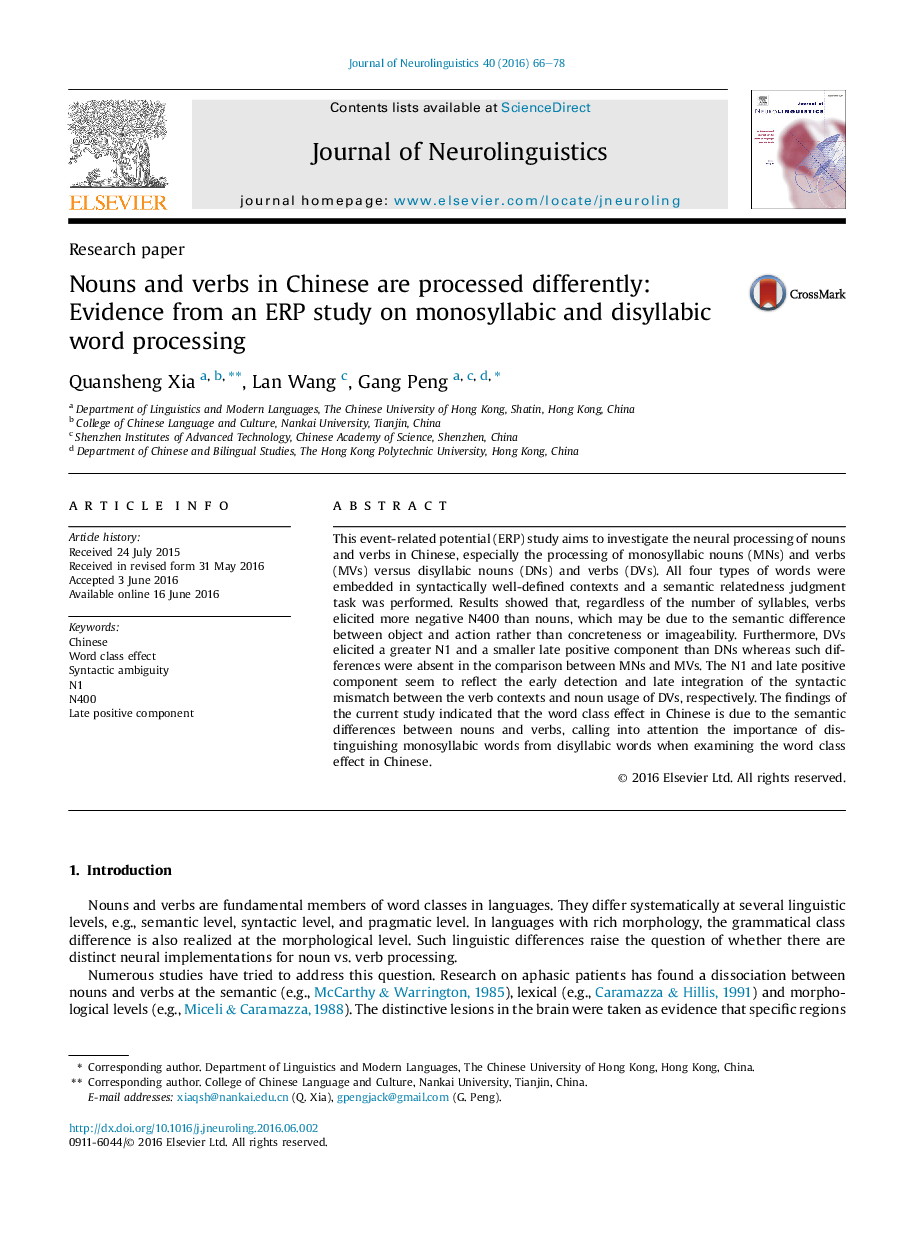| کد مقاله | کد نشریه | سال انتشار | مقاله انگلیسی | نسخه تمام متن |
|---|---|---|---|---|
| 911729 | 1473167 | 2016 | 13 صفحه PDF | دانلود رایگان |
• Nouns and verbs in Chinese are processed differently in the contexts.
• We found two ERP components, N400 and Frontal Negativity.
• Verbs elicit more negative N400 than nouns regardless of number of syllable.
• The difference on frontal negativity was significant only in the disyllabic words.
• The frontal negativity might be driven by syntactic ambiguity of disyllabic verbs.
This event-related potential (ERP) study aims to investigate the neural processing of nouns and verbs in Chinese, especially the processing of monosyllabic nouns (MNs) and verbs (MVs) versus disyllabic nouns (DNs) and verbs (DVs). All four types of words were embedded in syntactically well-defined contexts and a semantic relatedness judgment task was performed. Results showed that, regardless of the number of syllables, verbs elicited more negative N400 than nouns, which may be due to the semantic difference between object and action rather than concreteness or imageability. Furthermore, DVs elicited a greater N1 and a smaller late positive component than DNs whereas such differences were absent in the comparison between MNs and MVs. The N1 and late positive component seem to reflect the early detection and late integration of the syntactic mismatch between the verb contexts and noun usage of DVs, respectively. The findings of the current study indicated that the word class effect in Chinese is due to the semantic differences between nouns and verbs, calling into attention the importance of distinguishing monosyllabic words from disyllabic words when examining the word class effect in Chinese.
Journal: Journal of Neurolinguistics - Volume 40, November 2016, Pages 66–78
